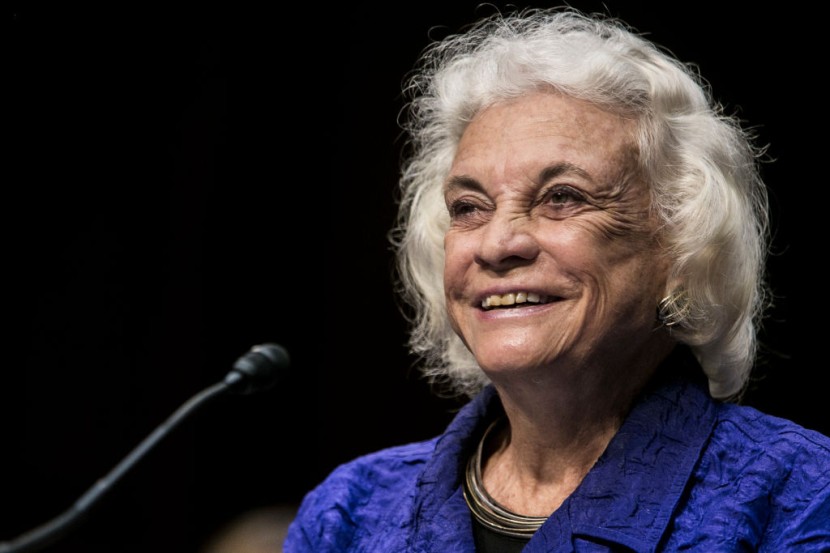The US Supreme Court has announced the death of one of its retired justices, Sandra Day O'Connor, on Friday (December 1) in Phoenix, Arizona at the age of 93.
She died of complications related to advanced dementia, as well as a respiratory illness, the court said in a statement.

O'Connor was the very first female to sit in the Supreme Court, trailblazing the path for women to sit in the highest court in the union. She served as Associate Justice from 1981 until her retirement in 2006, and continued to make public engagements until 2018 when she withdrew from public life due to her dementia diagnosis, CBS reported.
"A daughter of the American Southwest, Sandra Day O'Connor blazed an historic trail as our Nation's first female Justice," Chief Justice John Roberts said in a statement. "She met that challenge with undaunted determination, indisputable ability, and engaging candor. We at the Supreme Court mourn the loss of a beloved colleague, a fiercely independent defender of the rule of law, and an eloquent advocate for civics education. And we celebrate her enduring legacy as a true public servant and patriot."
O'Connor's Pre-SCOTUS Life, Career
Born in El Paso, Texas in 1930, Sandra Day grew up on her family's cattle ranch named "Lazy B" in southeastern Arizona.
She was admitted to Stanford at the age of 16 and graduated from Stanford Law in 1952. It was also during her time at Stanford that she met her husband, John Jay O'Connor, who died in 2009 due to complications from dementia.
As she entered the legal field, O'Connor struggled to find a job because of her gender. She only received one offer to work, as a legal secretary at a firm based in Los Angeles, which she turned down.
O'Connor instead offered to work for free as the county attorney for San Mateo County in California. She was then hired as deputy county attorney and, after her husband was stationed in Frankfurt, Germany worked as a civilian attorney with the Army Quartermaster Corps.
Upon their return to the US in 1957, they moved to the Phoenix area, where she was admitted to the bar and began a private practice with another lawyer.
By 1965, she worked as an assistant state attorney general and became a state senator in Arizona in 1969. he was reelected to the state's upper chamber twice and in 1972, became the first woman to serve as the majority leader of any state senate.
After her legislative stint, O'Connor entered the judicial branch in 1974, first as a county judge, then appointed to the Arizona Court of Appeals.
Read Also : Senate GOP Stages Walk Out Following Judiciary Committee's Subpoenas Related to Supreme Court Ethics Probe
O'Connor's Contribution to US Jurisprudence
O'Connor was appointed to the Supreme Court by former President Ronald Reagan in 1981. During her 24-year tenure, she was often at its center and was a crucial swing vote in divisive cases, including those involving abortion and affirmative action.
After stepping down, the Supreme Court's expanded conservative majority would go on to reverse the landmark decisions she helped shape, such as the constitutional right to abortion and race-conscious college admissions programs.
O'Connor was also in the 5-4 majority in the 2000 Bush vs. Gore case, which effectively decided the election of George W. Bush into the presidency. She has since expressed doubts about the court's decision to intervene in the dispute, telling the Chicago Tribune in 2013 that the court should not have dealt with it in the first place.
Upon leaving the court, she launched iCivics, a website helping children understand the political process through games that teach them about the three branches of the US government, campaigning, and polling voters, paving the way for future political leaders.
For her service to the US judicial system throughout her long career, President Barack Obama awarded her the Presidential Medal of Freedom, the nation's highest civilian honor, in 2009.
© 2026 HNGN, All rights reserved. Do not reproduce without permission.








